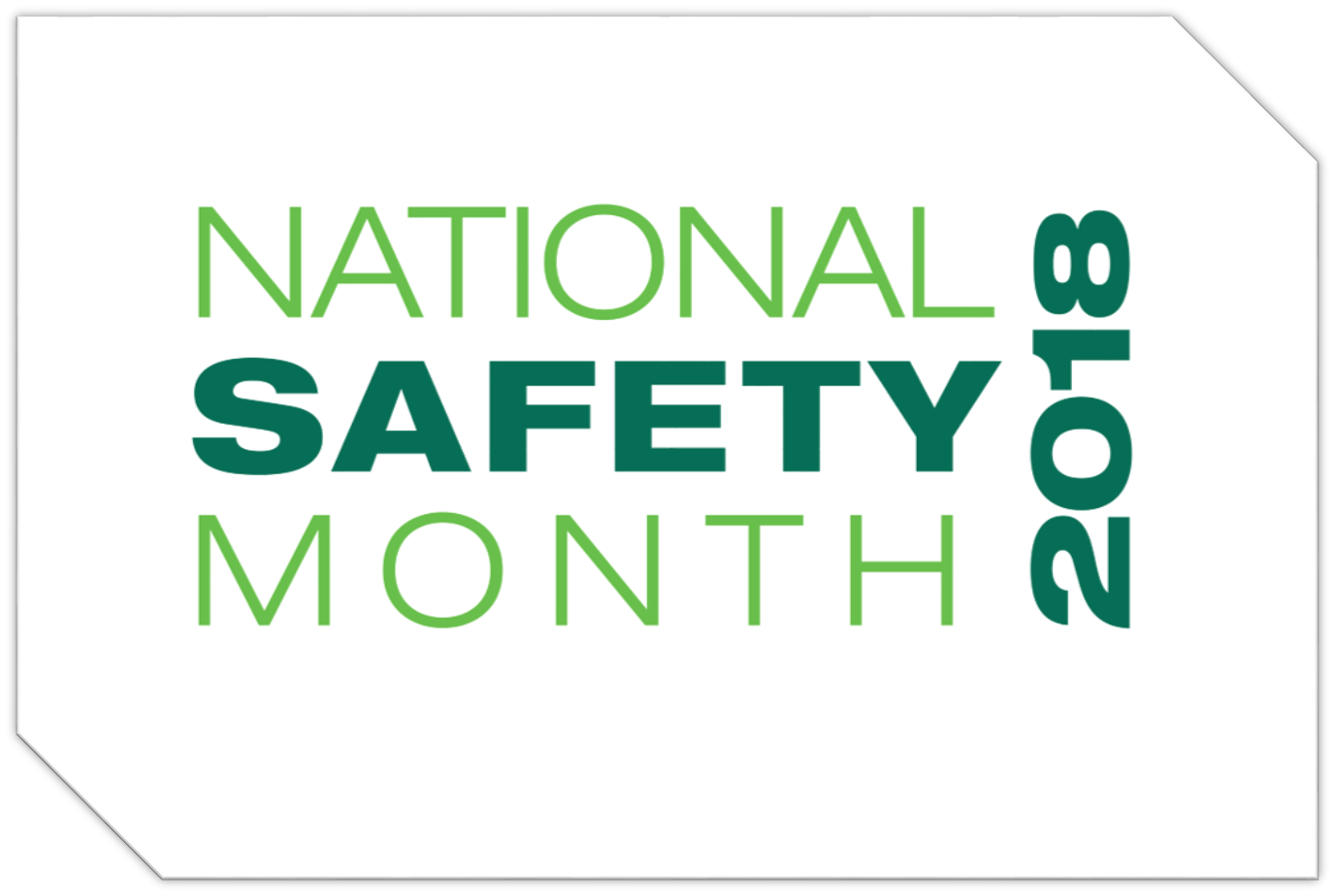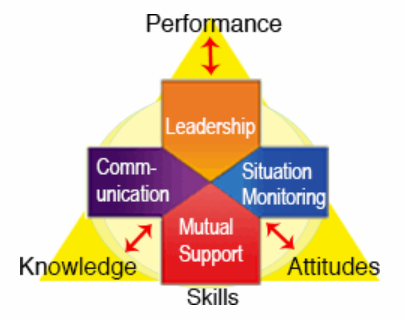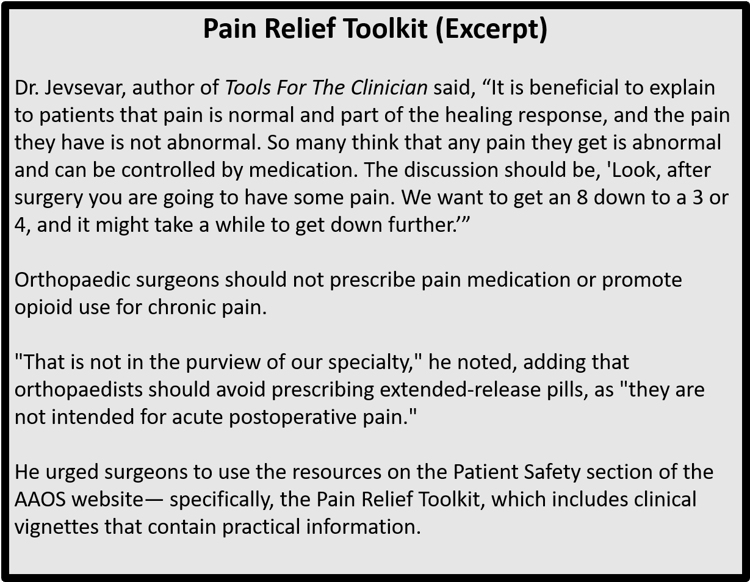
June is National Safety Month. For the American Joint Replacement Registry (AJRR), part of the American Academy of Orthopaedic Surgeons (AAOS) Registry Program, every month is safety month. Many registries around the world began with a mission of monitoring patient safety factors, including medical devices. Over the years, their missions have expanded to include broader data-driven, quality improvement efforts.
William J. Robb III, MD, AAOS TeamSTEPPS mentor, said, “Without safety, there is no quality or value; safety is the kernel around which all else is built.”
AJRR Safety Initiatives
Today, AJRR provides its subscribing institutions with relevant information on evidence-based care techniques, tools, and products used in hip and knee replacements. The AJRR is a not-for-profit corporation with a unique multi-stakeholder governance model that includes representation from an entire safety-minded community involved in the delivery of arthroplasty care. The contributions and perspectives provided by facilities, surgeons, device manufacturers, commercial health plan payers, and the public have been an important aspect of the success and growth of the organization.
“AJRR has seen significant participation growth since our 2016 annual report—a 101 percent increase in procedures, a 57 percent increase in reporting institutions, and a 50 percent increase in surgeons,” stated Daniel J. Berry, M.D., chair, AAOS Registry Oversight Committee. “Growth leads to more and better data, enables more actionable analysis, and yields insights that improve surgical decision support.”
Richard Price, senior vice president of payment and healthcare delivery policy at AdvaMed, said, “AdvaMed recommends that the Centers for Medicare & Medicaid Services support hospital participation in the AJRR to further advance the development of safety and quality measures related to total hip arthroplasty (THA)/total knee arthroplasty (TKA). The joint registry [AJRR] will allow the tracking of implant performance from the time of the index procedure and the identification of any complications or issues that may be related to the care of the patient with that device.”
Current AJRR safety initiatives include (but are not limited to):
- Developing Device Surveillance Network with Weill Cornell Medicine (WCM)
In 2015, the U.S. Food and Drug Administration awarded a U01 grant (Research Project Cooperative Agreement) to Weill Cornell Medicine (Art Sedrakyan, MD, PhD, Principal Investigator) in which AJRR is a subcontractor. Creating National Surveillance Infrastructure for Priority Medical Devices, also called the International Consortium of Orthopedic Registries, USA (ICOR-USA), aims to develop a national device surveillance network in the orthopaedic field using claims data and registry sources. - Improving Patient Safety in Michigan
The Michigan Arthroplasty Registry Collaborative Quality Initiative (MARCQI) is a Blue Cross Blue Shield of Michigan and Blue Care Network Collaborative Quality Initiative. This state-based program seeks to improve patient safety and the quality of hip and knee joint replacement procedures by promoting continuous quality improvement activities. AJRR's collaboration with MARCQI enables rapid recruitment and resultant data acquisition. - Tracking Safety Issues with ArthroplastyWatch
ArthroplastyWatch is a Swedish-based project designed to collect data on implant recalls or alerts and arthroplasty safety issues from a variety of sources around the world. The information is then disseminated online via a public website. Data are continually collected, updated, and monitored by a team of experts including AJRR Medical Director David G. Lewallen, MD, who is a member of the ArthroplastyWatch Advisory Board.
AAOS Registry Program Builds on AAOS Safety Initiatives
In 2017, AJRR became part of the AAOS Registry Program. The launch of the new program reflects the Academy’s strategic commitment to quality and safety. AAOS President William J. Maloney, MD commented on the new program, "A central group of orthopaedic registries, providing standardized and consistent data, will allow us to optimally measure performance and value, create and recommend informed reimbursement and treatment standards, develop education programs that address practice and treatment deficiencies, and most importantly, continually and collectively improve patient safety, treatment, and outcomes."
AAOS safety initiatives include (but are not limited to):

- Patient Safety Resources for Clinicians
- OrthoInfo Patient Safety Guidelines
- Pain Relief Toolkit, Opioid Safety Measures

Learn more about AAOS and AJRR safety initiatives at www.aaos.org and www.ajrr.net, respectively.
For information about the AJRR RegistryInsights™ platform, speak with a Business Development Representative at (847) 292-0530 or Request A Demo today!
Be sure to leave a comment in the form below!

